Round-up: Disability in Prison Report Launch 2020
16th January 2020
IPRT launched a new report 'Making Rights Real for People with Disabilities in Prison' on 15th January 2020 in the Irish Human Rights and Equality Commission.
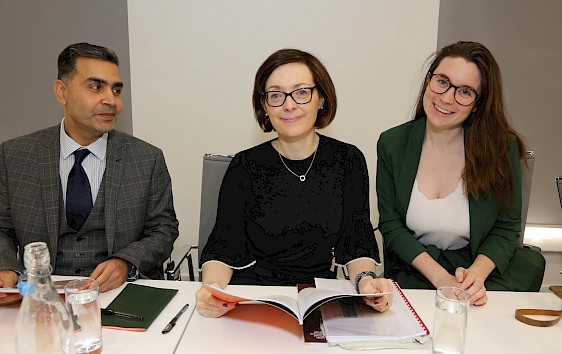
[L-R: Prof Gautam Gulati, University of Limerick; Áine Flynn, Mental Health Commission; Maria Ní Fhlatharta, Centre for Disability Law and Policy, NUI Galway. Photo: Derek Speirs]
You can read or download the full report here. You can read or download the accessible (large font) version of the report here.
Prisoners’ rights are guaranteed by numerous international and European treaties and Irish legislation. Despite this, international research demonstrates that prisoners with disabilities are often discriminated against and still encounter inaccessible spaces and a lack of support within prison. This new research explores the rights and experiences of prisoners with disabilities in Ireland through interviews with prisoners, prison staff and other stakeholders. It includes a series of key recommendations that should be implemented in order to eliminate discrimination and make rights real for people with disabilities in prison.
The research was commissioned by IPRT from the Centre for Disability Law and Policy (NUIG), and was led by Prof. Eilionóir Flynn.
This event was chaired by Joan O'Flynn, IPRT board member.
SPEAKERS
Maria Ní Fhlatharta: Report Author, Centre for Disability Law and Policy, NUI Galway.
(read Maria's presentation here)
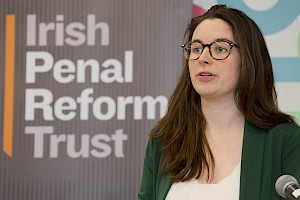
Report author Maria, researcher at the Centre for Disability Law and Policy at NUI Galway, took us through the findings of ‘Making Rights Real’. Issues related to access to environment, access to information, communication accessibility, and rights literacy found to lead overwhelmingly to the isolation of people with disabilities in prison. The qualitative report also found that prisoners with disabilities were acutely concerned about post-release supports.
Áine Flynn: Director of Decision Support Service, Mental Health Commission
(read Áine's presentation here)

Áine set out pathways to implementation of Assisted Decision-Making (Capacity) Act 2015, with reference to a number of recommendations in the IPRT report.
Prof Gautam Gulati MD: Consultant Forensic Psychiatrist/Adjunct Associate Clinical Professor at University of Limerick.
(read Gautam's presentation here)
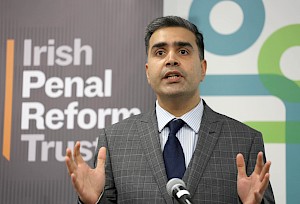
Gautam discussed his own research on disability in Irish prisons - early intervention, staff awareness, and more data are all key in addressing the issues currently faced by prisoners with disabilities.
RESPONDENTS
Dr John Devlin: Executive Clinical Lead, Irish Prison Service.
(read John's presentation here)

John responded to the findings of the report and noted that the Healthcare Needs Assessment is due for completion this year. IPRT welcomes this and also welcome the open facilitation of this research project by the Irish Prison Service.
Patricia Gilheaney: Inspector of Prisons
(read Patricia's presentation here)

Inspector of Prisons Patricia Gilheaney endorses the report recommendations in full, states that the report should be essential reading, not only for recruit prison officers, but "for everyone" - emphasising the importance of the statements of lived experience.
Robbie Sinnott: Voice of Vision Impairment
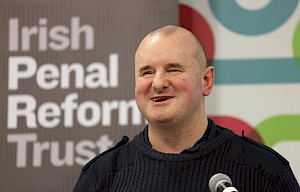
Robbie was a member of the research advisory group for the report. He articulated clearly the importance of the report, including obligation to provide accessible information on rights. He also highlighted the human cost of neglecting the rights of people with disabilities in prison.
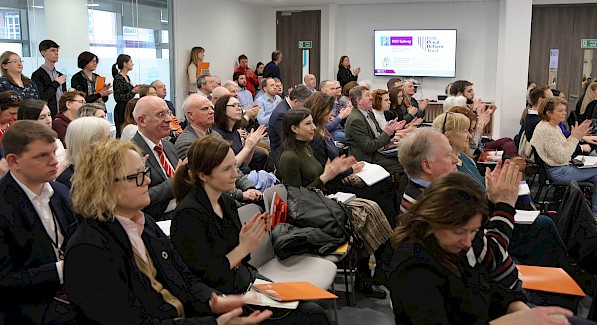
More photos of the event available here.
Read More:
Irish Legal News: New report to examine rights for prisoners with disabilities
Irish Times: Disabled prisoners often left isolated in cells due to a lack of supports
Irish Legal News: Disabled prisoners facing challenges in ‘all areas of prison life’, report warns
IrishHealth.com: New report on prisoners with disabilities
Irish Examiner: Prisoners with disabilities feel they are being 'punished' because of their condition, report finds
Listen back:
Morning Ireland, 15th Jan 2020: Prisoners with disabilities facing human rights issues
This project was supported by the Irish Human Rights and Equality Commission, under the Human Rights and Equality Grants Scheme 2018.





